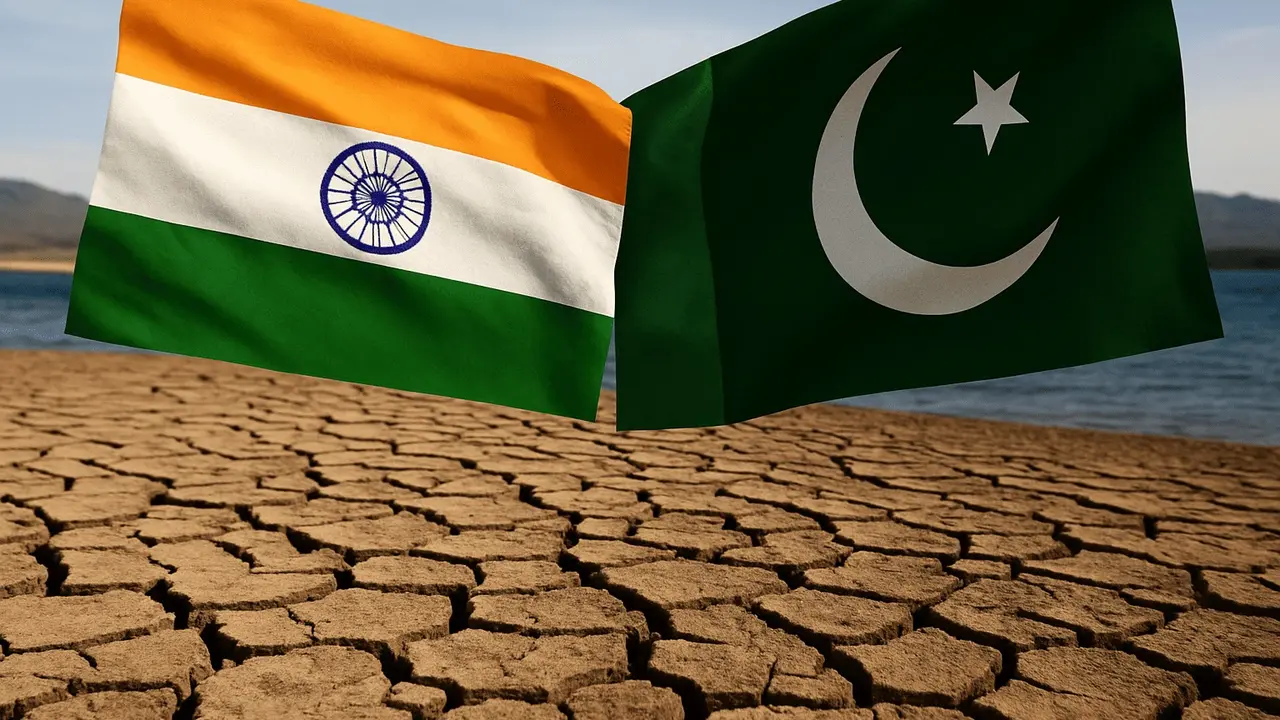Updated 23 April 2025 at 21:46 IST
Why India's Decision To End Indus Water Treaty Will Leave Pakistan Thirsty
India ends Indus Waters Treaty after Pahalgam terror attack; Pakistan loses 80% water access, faces drought risk as India fast-tracks dam, hydropower projects.
- Republic Business
- 2 min read

India has officially declared an end to the Indus Waters Treaty (IWT) — a pact that had withstood wars, terror attacks, and diplomatic stand-offs since 1960. The decision comes in the immediate aftermath of the Pahalgam terror attack, where 26 civilians, including children and tourists, were gunned down by The Resistance Front — a known proxy of Pakistan-based Lashkar-e-Taiba.
Prime Minister Narendra Modi , returning early from a diplomatic mission in Saudi Arabia, called the attack a “cowardly act that will not go unpunished”—and within hours, New Delhi announced it would unilaterally withdraw from the IWT, ending Pakistan’s decades-long access to over 80% of the Indus river system’s waters.
Read This Also: 'Punish Them Like Kasab': Family Demands Justice After Maharashtra Man Shot Dead in Pahalgam
End of the Water Truce
Advertisement
Brokered by the World Bank in 1960, the Indus Waters Treaty had granted Pakistan unrestricted use of the western rivers — Indus, Jhelum, and Chenab — vital to its agricultural heartland. India controlled the eastern rivers — Ravi, Beas, and Sutlej — and could build run-of-the-river hydro projects but not store or divert western waters.
That understanding is now history. “Blood and water cannot flow together,” PM Modi had declared after the 2016 Uri attack. Today, that policy is in action.
Advertisement
Immediate Fallout: What It Means for Pakistan
Water Shock
Pakistan stands to lose access to 135 million acre-feet of water annually, which feeds the farms of Punjab and Sindh.
Any disruption could lead to widespread drought, food shortages, and economic chaos in the country’s most populous regions.
India is now free to unilaterally expand dam projects like Shahpurkandi (Ravi) and Ujh (Jhelum), storing and redirecting flows.
New hydropower stations could boost India's energy capacity and deny Pakistan the timing and volume of seasonal flows it depends on.
Pakistan is expected to approach the United Nations, the World Bank, and friendly countries. But experts say the world mood has shifted, with fatigue over Pakistan’s failure to curb cross-border terrorism.
A Treaty That Lasted 64 Years—Shattered in a Day
For decades, the Indus Waters Treaty was hailed as a model of water diplomacy — surviving the wars of 1965, 1971, Kargil in 1999, and even the 2008 Mumbai attacks. But it could not survive Pahalgam.
India’s decision to walk away from the Indus Waters Treaty marks a new era in its Pakistan policy — no more business as usual.
Published By : Rajat Mishra
Published On: 23 April 2025 at 21:43 IST
